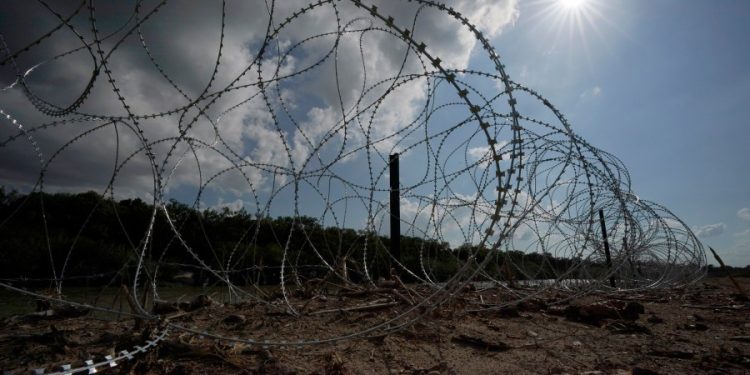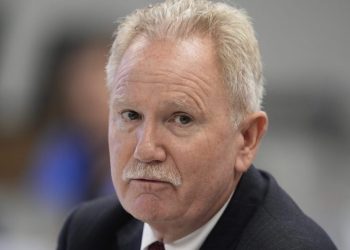A government watchdog found serious lapses in how the Department of Health and Human Services (HHS) vetted sponsors for a wave of migrant children that arrived in the U.S. along the Mexican border in 2021 without a parent or guardian.
According to a report released Thursday from the HHS Office of Inspector General, agency officials failed to show they conducted basic sponsor safety checks, such as verifying their address and running a criminal background check, before releasing children to sponsors’ custody.
Once the children were released, the report found officials sometimes failed to conduct follow-up safety checks too.
HHS’s Office of Refugee Resettlement (ORR) is responsible for sheltering unaccompanied migrant children. The report examined a period in early 2021 when their numbers spiked dramatically, at the same time as the COVID-19 pandemic led to staffing shortages and restrictions on the number of beds available at agency-licensed shelters.
The agency has come under fire for releasing children from government shelters too quickly, and to adults who then exploited the kids by putting them to work in dangerous jobs in violation of child labor laws.
“We acknowledge that ORR received a surge in referrals of unaccompanied children during our review period in 2021, that created operational constraints and hindered its ability to fulfill its mission. However, the number of unaccompanied children in ORR care has fluctuated widely over time, and ACF [Administration for Children and Families] needs to be prepared to safely place children with sponsors in the event of future influxes,” the report concluded.
The report looked at 300 cases from March and April 2021, a period when HHS released more than 16,000 children to adult sponsors. According to the report, 16 percent of unaccompanied children released to sponsors did not contain any documentation that indicated required safety checks were conducted.
In about a third of all the cases examined, the agency did not have legible ID’s from sponsors. Facility staff are required to ensure that copies of sponsor-submitted IDs include a legible photo and information, but the report found sponsor IDs that were blurry, grainy and missing watermarks or holograms, raising concerns that they might be fake.
HHS staff are supposed to conduct followup phone calls with all children between 30 to 37 days after placement with adult sponsors. But the report found that in 22 percent of all cases, those calls were not made in a timely manner; the average delay was more than three months, and the latest followup took nearly a year.
ACF concurred with all the report’s recommendations on improving safety of the children in custody, and noted the review examined “one of the most challenging periods in ORR’s history amid a historic number of unaccompanied children placed in ORR care, the largest and fastest expansion of emergency capacity, and at the height of the COVID-19 pandemic.”
The agency said it has already taken action to address the issues in the report, including new training for staff.















